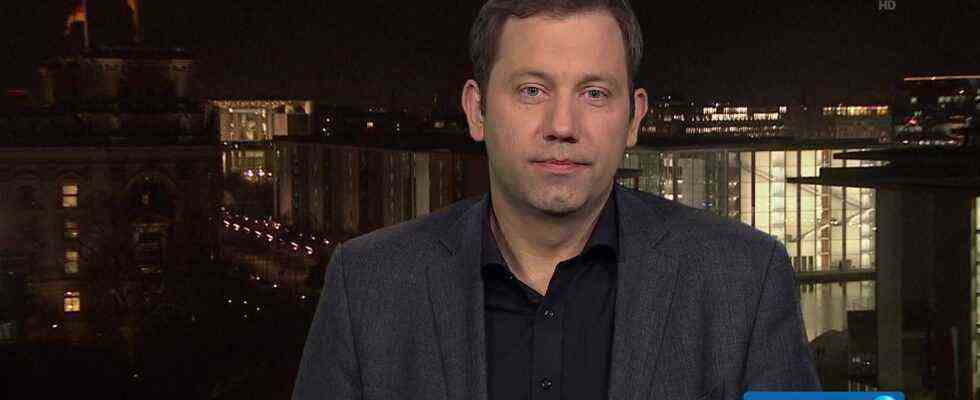Status: 01/31/2022 10:37 p.m
So that the Ukraine crisis does not turn into a crisis for the SPD, co-party leader Klingbeil has invited to internal consultations. in the daily topicsinterview, he reiterated his party’s unified stance – including in relation to Russia.
Leading SPD politicians spoke confidentially about the party’s course in the Ukraine crisis. The party leadership wants to show unity towards Russia with diplomacy and threats of sanctions, but this only succeeds to a limited extent – the former SPD chairmen Gerhard Schröder and Sigmar Gabriel have broken away from the party line.
In addition, the SPD had recently been repeatedly criticized for refusing arms deliveries to Ukraine. The pressure on Chancellor Olaf Scholz to position himself is also growing internationally.
“What we say applies to the entire SPD”
The attitude of the SPD at the meeting of around 20 leading social democrats was “very clear,” said SPD co-leader Lars Klingbeil in an interview with tagesthemes. The escalation on the Russian-Ukrainian border comes from Russia. The task now is to find a peaceful solution. The SPD has set itself up for this today, according to Klingbeil.
Toward the controversial statements made by Schröder Russia addressed, Klingbeil said that he had made it clear in the round that he was deciding on the current position of the SPD with co-chairman Saskia Esken and Chancellor Scholz, not the ex-chancellor. “What we say applies to the entire SPD.”
Lars Klingbeil, SPD chairman, on the different positions in the party leadership
daily topics 10:15 p.m., 31.1.2022
“We now focus on organizing peace”
Responding to the accusation that the German government’s hesitant attitude was causing international skepticism and uncertainty, Klingbeil said: “Organizing peace is sometimes more difficult than talking about war.” His party has a unified stance on the Ukraine crisis and on relations with Russia. Today’s group within the party, which has dealt with these issues, sees it just like “the entire SPD” that “the escalation that we are currently experiencing on the Russian-Ukrainian border emanates from Russia.”
The situation is complex, emphasized the SPD leader, adding: “We say clearly who is responsible for the escalation, but we are now focusing on organizing peace. If Russia attacks Ukraine’s territorial integrity, “all options are on the table table,” affirmed Klingbeil.
When asked whether this would also mean the end of the Nord Stream 2 gas pipeline, he said: “I don’t think the sentence that all options are on the table should be misunderstood.” Mecklenburg-Western Pomerania’s Prime Minister Manuela Schwesig also took part in the deliberations. Even after the crisis escalated, she continued to advocate for the commissioning of the controversial Nord Stream 2 gas pipeline between Russia and Germany. In your country, numerous jobs depend on the project.
When asked about the possibility of sanctions against Russia in the event of an invasion of Ukraine, Klingbeil still did not name Nord Stream 2 – unlike Foreign Minister Annalena Baerbock from the Greens. In this respect, he thinks it is wrong to let Russia look at the cards. The crucial thing is that Russia knows that the moment they “attack the territorial integrity of Ukraine” and “cross the border politically and geographically”, there will be “a clear, tough and consistent response from Germany, from Europe, from give to the transatlantic partners”.

